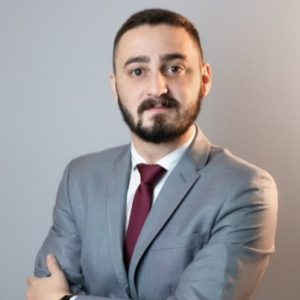The entity's government relations area continues with an intense agenda to closely monitor the main discussions that directly impact the entity's members and also the sector in general.

In early June, Wislas Souza, coordinator of the RelGov area of the SDB, attended the second public hearing of the Health Committee of the Chamber on the creation of the single and interoperability of health data (PL 5875/2013). The The work was chaired by Congresswoman Adriana Ventura (NOVO/SP), who highlighted the importance of considering the points made by the private sector, including information technology companies, health service providers and other organizations, which have in-depth knowledge of the needs and challenges in implementing and using electronic medical record systems.
Robson Matos, coordinator of Health Informatics Standards, highlighted that the RNDS aims to centralize and universalize health data, integrating information from public and private systems through an interoperability standard. He explained that the data will be made available to patients, health professionals during care and, in the future, to health managers.
The debates also highlighted the need for clarity in defining which entities should access the data, as highlighted by Raquel Rachid, a researcher at the Public Policy and Internet Laboratory, who expressed concern about the influence of commercial interests on SUS data. Lélio Souza, vice president of Digital Services at Afya, highlighted the importance of localizing data storage and advocated the inclusion of APIs in the RNDS. This would allow secure and consented access to data through medical records, improving care and promoting clinical research. Dulcineide Oliveira pointed out integration and training challenges, while Alex Vieira stressed the need for robust infrastructure. Manuela Marcatti drew attention to the requirement for digital signatures to guarantee the legal validity of medical records.
The coordinator was also present at the public hearing of the Chamber of Deputies Working Group Tax Reform. The meeting discussed PLP 68/2024 (regulation of CBS, IBS and IS) and the differentiated regimes. Twenty guests participated, representing regulated professions, education and health services, medical and accessibility devices, enteral and parenteral compositions, as well as hygiene and cleaning products.
Camilla Cavalcanti, director of the Extraordinary Secretariat for Tax Reform, stated that the regulation of the differentiated regimes sought to strike a balance between complying with the Constitution in a simple and objective manner, ensuring legal certainty, without increasing the reference tax rate for other sectors. She also highlighted that Congress may adjust the application of the differentiated regime, but warned that this will impact the tax rate for other sectors. Diogo Penha Soares, representing the Ministry of Health, highlighted that the reform should reduce the burden on SUS purchases, allowing for more investment.
On the other hand, representatives of the healthcare sector criticized the listing of NCMs and suggested technical criteria from Anvisa for the classification of medical devices. Concerns were raised about the possible disincentive to technological development in the healthcare sector and the need to maintain tax neutrality for the entire sector, exempting all devices in 60%, except those already fully exempted.
In addition, Souza participated in the Thematic Debate Session in the Plenary of the Federal Senate on the regulation of artificial intelligence (AI) in Brazil, requested by Senator Eduardo Gomes (PL/TO). On the occasion, Senator Carlos Viana (PODE/MG), president of the Internal Temporary Committee on Artificial Intelligence (CTIA), stated that the bill balances technological development and human rights, ensuring that AI does not harm democracy, privacy and human rights.
CTIA rapporteur, Senator Eduardo Gomes (PL/TO), stressed that AI regulation should not be confused with issues such as combating fake news and political polarization. He also emphasized how crucial it is to keep the debate on AI separate from the political scene, as technology is not a solution to these problems. He defended the need for patience and a democratic debate to find appropriate solutions for AI regulation, emphasizing that innovation will be present in all areas of activity. The rapporteur also indicated that regulation cannot be merely principle-based, under the risk of the State losing the power to monitor and punish misuse of these tools.





